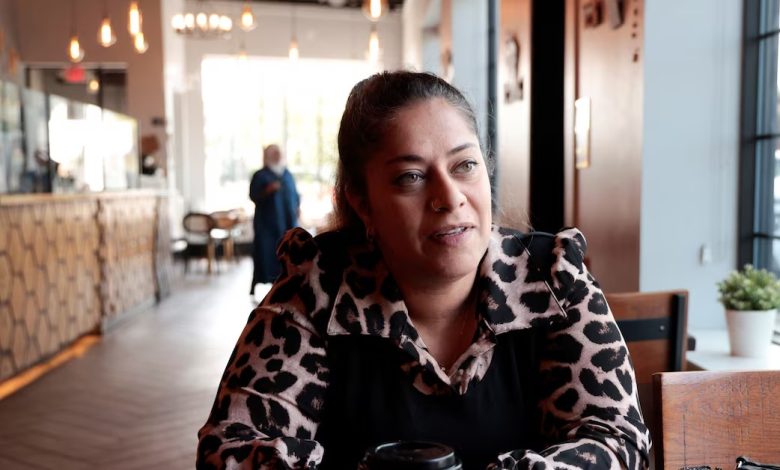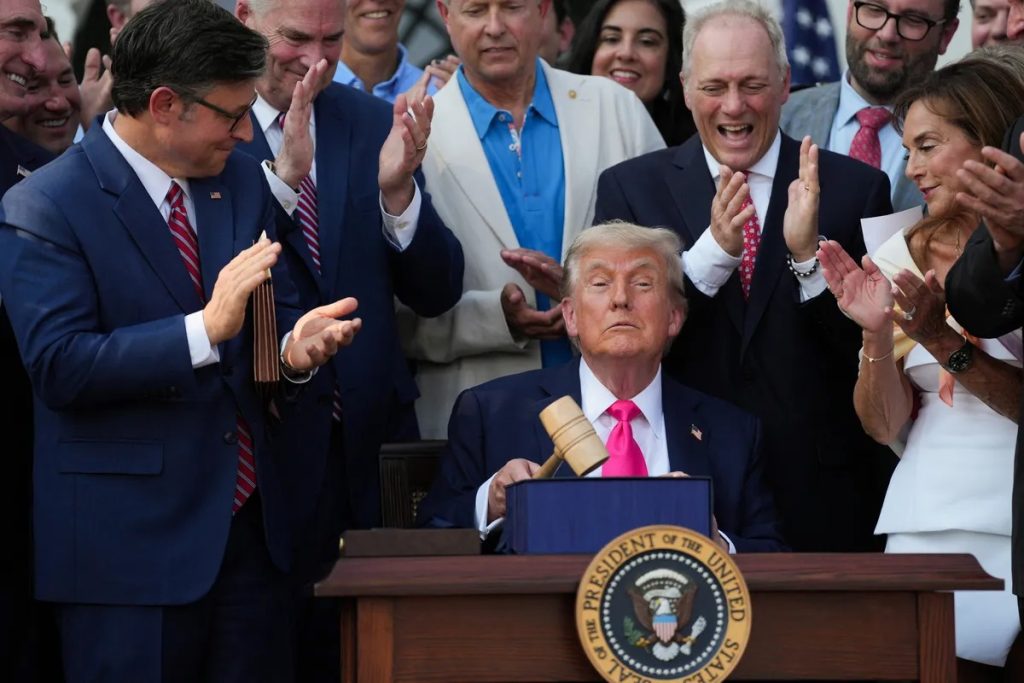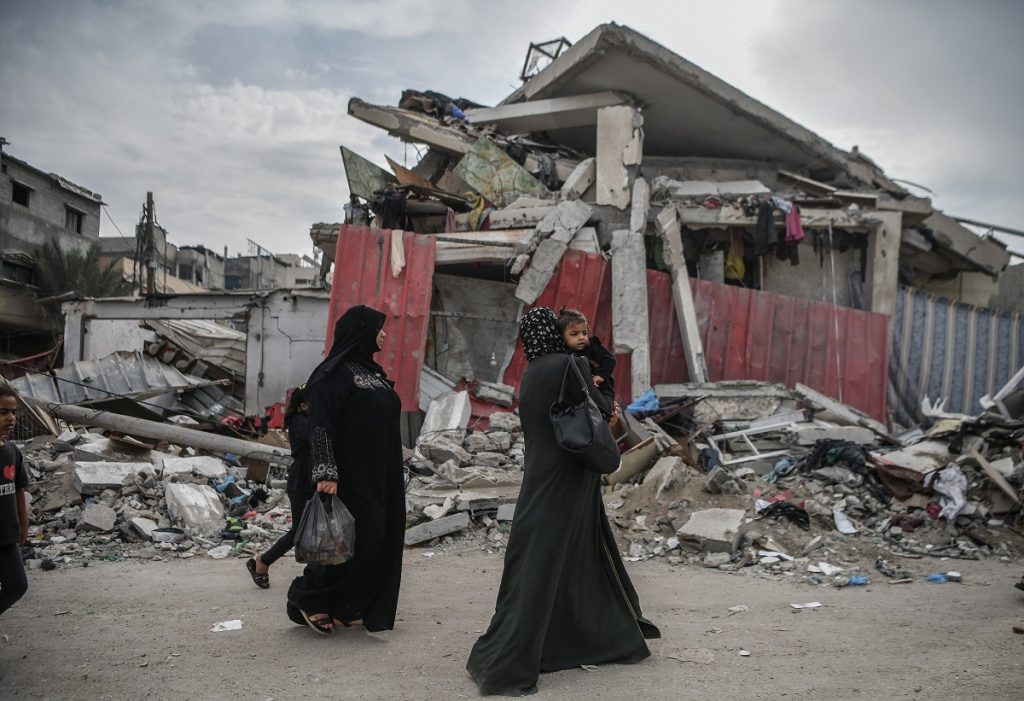Arab American Trump Supporters in Michigan Feel Vindicated After Gaza Ceasefire
Following Donald Trump’s brokered Gaza ceasefire, many Arab American voters in Dearborn express cautious optimism—balancing relief with lingering distrust toward Israel and U.S. policy.

Democrat Samra Luqman has become one of Donald Trump’s strongest supporters among Arab Americans in Dearborn, Michigan, during the 2024 elections—motivated by hopes that he could bring an end to the Gaza war.
Now, after Trump successfully brokered a ceasefire, Luqman feels both thrilled and somewhat vindicated, following months of backlash from neighbors angered by Trump’s staunch support for Israel.
“It’s almost a moment where I can say, ‘I was right,’” said Luqman, a Yemeni American. “No other president could have forced Israeli Prime Minister Benjamin Netanyahu to agree to a ceasefire.”
Cautious Optimism
Many Arab American Trump supporters expressed cautious optimism about the new deal, fearing Israel might violate it as in past agreements in Gaza and Lebanon.
Mike Hisham, a Lebanese American political consultant from Dearborn who was active in Trump’s 2024 campaign, said, “We’re all holding our breath. Credit where it’s due—but this isn’t peace. It’s just the end of a bloody war, and those lost lives on both sides will never return.”
Recent Israeli airstrikes in Qatar and other Arab states have deepened mistrust toward Israel among Michigan’s Arab population—now exceeding 300,000. Still, the ceasefire represents the most significant step yet toward ending two years of war, which Palestinian health authorities say has killed over 67,000 people in Gaza.
The deal also includes the release of the remaining 20 of 250 hostages captured by Hamas during the October 7, 2023, attacks that killed more than 1,200 people, according to the Israeli government.

Frustration and Disillusionment
Months of disappointment have followed as Arab Americans criticized Trump’s failure to rein in Netanyahu and his decision to reinstate the travel ban on several Muslim-majority countries.
Despite their electoral support—thousands of votes that helped Trump secure Michigan—many Arab and Muslim Americans say they have not seen meaningful representation in his administration.
It remains unclear whether the ceasefire deal will influence skeptical voters as the Republican Party faces tight races in Congress, Michigan’s 2026 governor election, and the 2028 presidential race.
Hisham said, “Trump will be hailed as a ‘peace hero’ after this, but Arab American voters could turn on him if the deal fails. We’ve shown we can shift our votes whenever we choose.”
Shift Toward Trump
Trump won Michigan by over 80,000 votes in 2024, overturning his 2020 loss to Joe Biden. A 2024 Arab American Institute poll showed Trump favored by 42% of Arab Americans nationwide, compared to 41% for Kamala Harris—a sharp decline from Biden’s 2020 performance.
Campaign insiders say Trump’s success among conservative Arab Americans also stemmed from opposition to Democratic policies on gender and social issues.
Still, Luqman acknowledged that many Arab Americans voted for Trump “out of hatred” toward Democrats rather than loyalty to Republicans. Whether that support lasts, she said, depends on what happens next in Gaza.
“I don’t think they’ve found a political home yet,” Luqman added. “But Trump’s pressure on Netanyahu could strengthen support for JD Vance in 2028 and for other Republicans in the midterms.”
Disillusionment and Withdrawal
Imam Bilal Zuhairi, a Yemeni American cleric who endorsed Trump in 2024, said many Yemenis later felt betrayed after the reinstatement of the Muslim travel ban. “Now many people feel deeply uneasy—they fear for themselves and their families,” he said, announcing his withdrawal from politics to focus on faith and community.

Trump’s Outreach to Arab Voters
Trump’s special envoy, Richard Grenell, recently met with Dearborn leaders to address growing frustration and prevent Arab Americans from returning to the Democratic camp.
Grenell told reporters, “The Arab and Muslim communities in Michigan are key to winning the state. These leaders want—and deserve—direct access to policymakers.”
Despite tough questions on the travel ban and U.S. arms sales to Israel, Grenell promised continued dialogue. “You can’t just show up before elections and expect to be trusted,” he said.
Uncertain Future
Ali Al-Jahmi, a 20-year-old Yemeni American who mobilized Arab youth through viral social media campaigns for Trump, praised the former president’s visits to Dearborn. Yet he remains cautious: “Trump made a lot of promises before the election. Now he’s in power, and we’ll see whether he keeps them.”
The Gaza ceasefire may have won Trump short-term praise, but for Michigan’s Arab Americans, the test of trust has only just begun.



